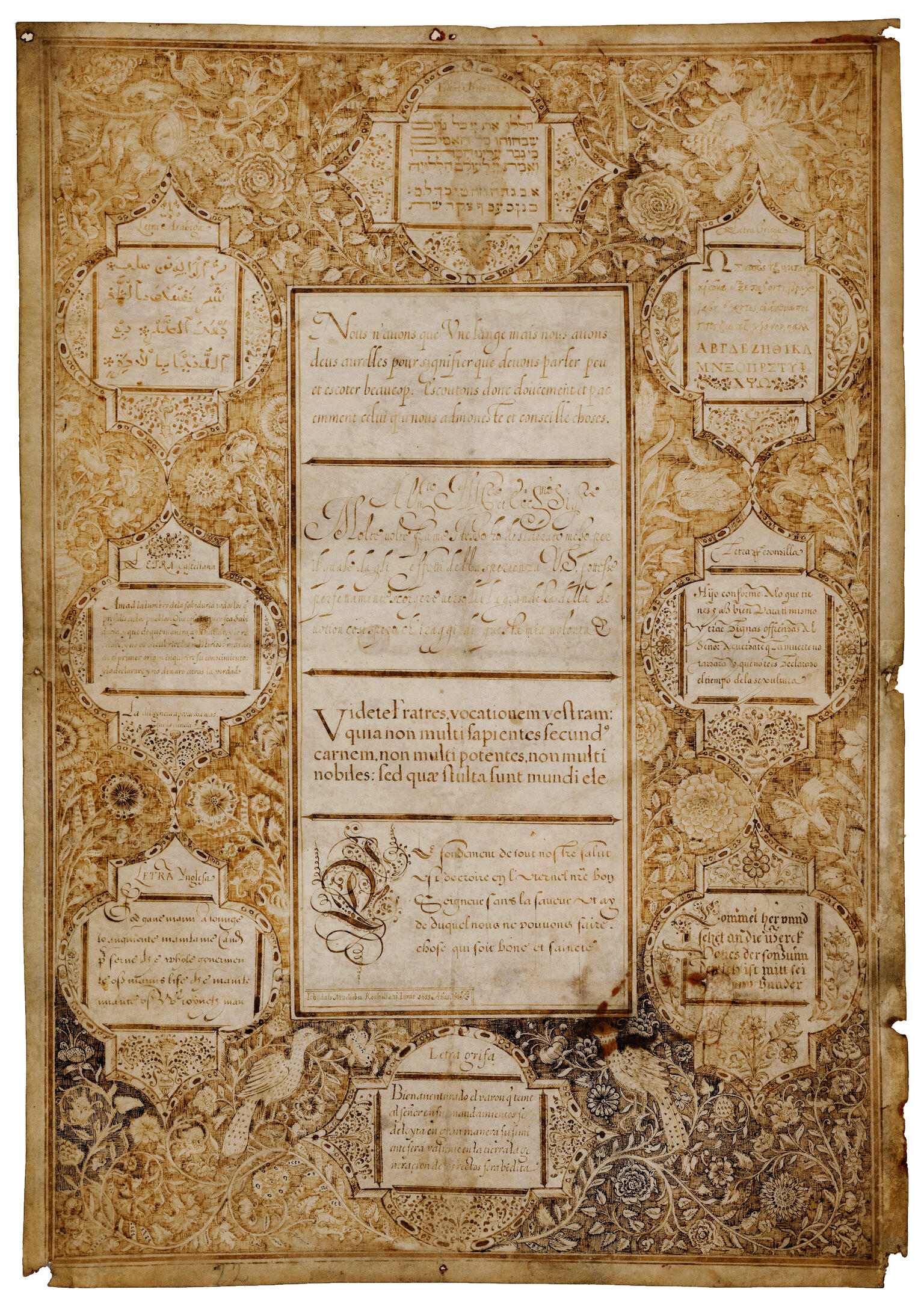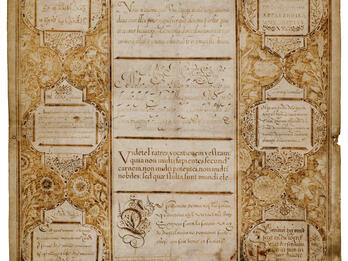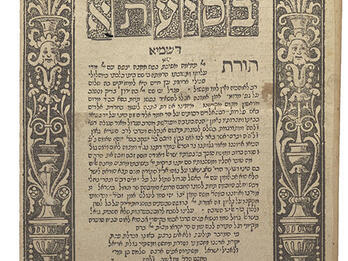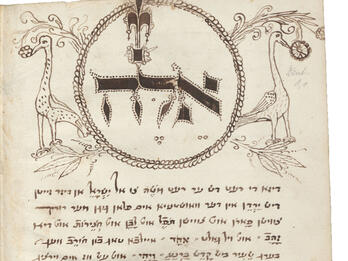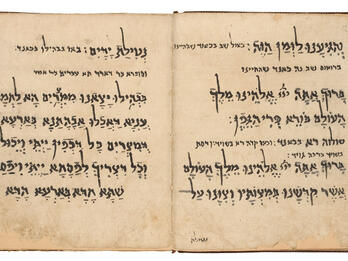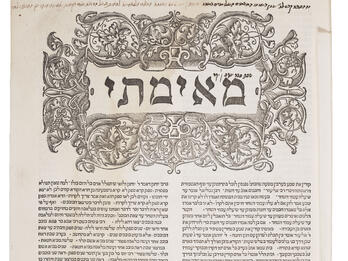Ladino Translation of Baḥya Ibn Pakuda’s Ḥovot ha-levavot (Duties of the Heart)
[From the Title Page:]
A book titled in Ladino Obligasyon de los korazones [Duty of the Hearts] because it is translated from a text written by the pious gaon, our master Baḥya the judge, of blessed memory, and is a book for perfecting and mastering the soul, to be read so one can serve the holy blessed God. It was published by Moses, the honorable son of R. Solomon Ashkenazi, may God preserve and redeem him. [ . . . ]
[Preface by the Ladino Translator:]
These Are the Translator’s Words
The ultimate purpose for which man was created was wholeheartedly to serve the Holy One so that man might be sustained in this world and inherit the other world that was created for him. This pious man, however, saw that people in his era were not wholeheartedly serving the Holy One and so he printed this holy book that turns hearts of stone to dough, ready to receive the good doctrines of our Holy Law and affirm all the commandments out of love for the Lord who gave these commandments, and ready to serve God, Blessed be He, with all their soul and heart. In those days, the most widely used language was Arabic, and so he wrote it in the Arabic language.
For all these reasons, I, Tsaddik ben R. Joseph Formon, may God preserve and redeem him, translated this book from Hebrew into Ladino, since this is the most widely used language among us today. And since this was my intent, I abridged some chapters where passages seemed unnecessary for our purpose, and I trust that the Lord, blessed be He, will help me bring my intention to fruition, which is that all who read this book will come to embrace the commandments of our blessed Torah and all the contents of this book, so that we might all thus achieve happiness in the true world and the infinite glory that the Holy One, blessed be He, has hidden and reserved for the pious and righteous in His kindness and mercy. As scripture says: How great is the goodness that Thou reserves for those who fear Thee, which Thou have wrought for those who take shelter in Thee (Psalms 31:19). And it says: How great is Thy mercy O God, and children of men shall take shelter in the shadow of Thy wings. They shall be abundantly delighted at Thy house, and with streams of Thy delights wilt Thou give them to drink. For with Thee is the source of life. By Thy light shall we see light. Bring down Thy kindness upon those who know Thee, and Thy justice upon the righteous of heart (Psalms 36:7–10). And the prophet Isaiah says: He that walks in righteousness, and speaks uprightly; he that despises to gain by oppression, he that shakes his hands to reject bribes, that stops his ears against murderous plots, and shuts his eyes against seeing evil; those who do this shall dwell on high. Their eyes shall behold the King in His beauty (Isaiah 33:15–17). And King David also says in Psalm 24: He that ascends into the mountain of the Lord and stands in His holy place clean of hands and pure of heart, who has not lifted up his soul to falsehood, and has not sworn deceitfully, shall receive blessing from the Lord and justice from the God of his salvation (Psalms 24:3–5). What we learn from all these verses is that if we wish to obtain the goodness of the world to come, we must be pure of heart and follow the commandments in love of God, with great joy. As King David said: The law of Thy mouth is better to me than thousands of gold and silver pieces (Psalms 119:72), and he also says: On the path of Thy commandments do I find my delight (Psalms 119:35) above all possessions. And when we follow the paths of the good, the holy blessed God will grant redemption, as the verse says: Thus has the Lord said: do justice, for near is my salvation to come (Isaiah 56:1). Amen, so be it.
Credits
Tsaddik Formon, “Ladino Translation of Baḥya ibn Pakuda’s Ḥovot ha-levavot (Duties of the Heart)” (Manuscript, Ottoman Empire, 16th century); first printed as Obligacion de los coraçones (Salonika, around 1568). Republished as: Baḥya ben Joseph ibn Pakuda, Ḥovot ha-levavot: livro lyamado en Ladino obligasion de los korasones, trans. Zaddik ben Joseph Formon (venetsi’ah: Nella Stamperia Bragadina, 1713), pp. 1–2 (preface).
Published in: The Posen Library of Jewish Culture and Civilization, vol. 5.


